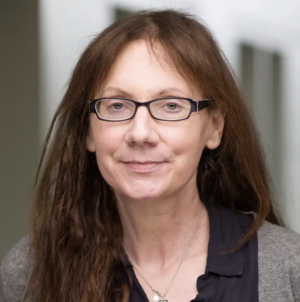A True Role Model: Dr. Lisa Schwartz
 by Danielle Ofri
by Danielle Ofri
Beacon Broadside
There’s nothing quite like the sucker-punch feeling of turning the page of the newspaper with your morning coffee and suddenly seeing an obituary of someone you know. But that’s what happened last week when I turned page A27 to see a photo and obituary for Dr. Lisa Schwartz, who died at the age of fifty-five of cancer.
When I was a medical student and did my very first rotation on the medical wards of Bellevue Hospital, Lisa was my resident. To say that I was green would be an understatement. Every medical student is green when they start on the wards, but I had stepped away from the traditional path for four years in a lab, so the coursework of the first two years of medical school was hardly a flickering shadow in my hippocampus.
But it was my supreme good fortune to have Lisa Schwartz at the helm as I struggled to find my way on the 16-North medical ward. Lisa defined for me what it was to be a doctor at Bellevue—committed, brilliant, easy-going, and of course, endowed with a suitably dry sense of humor. Back in those days, we wrote our progress notes on paper, which in Bellevue was bright pink for some inexplicable reason. I still have a perfect image of her impeccable admission notes, which set the standard for how to think about a patient’s illness and capture all the clinical nuances. No matter how busy a night we had, the next morning every new patient had a neatly printed and intensely thorough Senior Resident Admitting Note. It has remained my standard to this day.
When I wrote my first book about becoming a doctor, the very first chapter took place on that ward in that month. I had been confused about how to work with a patient who seemed only to want to jabber on about all the nonmedical trivialities of the day. But Lisa relayed to me how she once stayed up late with a patient singing songs with him, because that was what he connected with and what brought him comfort. “So it was okay just to spend time with your patients,” I later wrote. “It was okay to do things besides record your patients’ vital signs. My resident said so!”
Because your resident said so. At Bellevue, what your resident said was as good as gold. Whether it was about how to aspirate ascites fluid from the abdomen of a cirrhotic patient, how to diagnose granulomatosis with polyangitiis, how to wrangle a CT scan from an obdurate radiologist, how to handle a hallucinating patient who spoke only Igbo, how to interpret an EKG when you couldn’t get a stable baseline, how to run a code, or where to get a cheese Danish once the coffee shop closed—your resident was the authoritative voice. Lisa skillfully guided all of us newbies as we struggled to find our footing. She loved to teach and always exuded joy about being with patients.
It was no surprise to anyone who knew Lisa that she went on to do groundbreaking and creative work that has benefited so many patients. She wasn’t afraid to question how and why we make diagnoses and helped expose the harms from overdiagnosis. She wasn’t shy about challenging the FDA on how to make labelling of medications more understandable to patients. She relentlessly questioned so many assumptions in medicine that most doctors take for granted.
Lisa came back to Bellevue two years ago to give a Grand Rounds lecture. None of us had any idea that she had already been sick for five years by then. But she gave an inspiring lecture on how we can improve medicine on a grand scale, and what that means on an individual level for patients. Many of the younger doctors in the audience hadn’t known her before, but we communally swelled with pride that she had cut her chops on our home turf.
It’s devastating to lose someone who has been an inspiration both globally and personally. I will always remember the comfort she gave me during one particularly upsetting situation in that first month of doctoring. But most importantly, she not only taught us students the ins and outs of medicine; she taught us how to be a doctor—in the fullest sense of the word. They say you never forget your “first,” and Lisa Schwartz was my first. We’ll miss you!
Dr. Lisa Schwartz has a cameo in the first chapter of Singular Intimacies: Becoming a Doctor at Bellevue. Read “Drawing Blood.”
